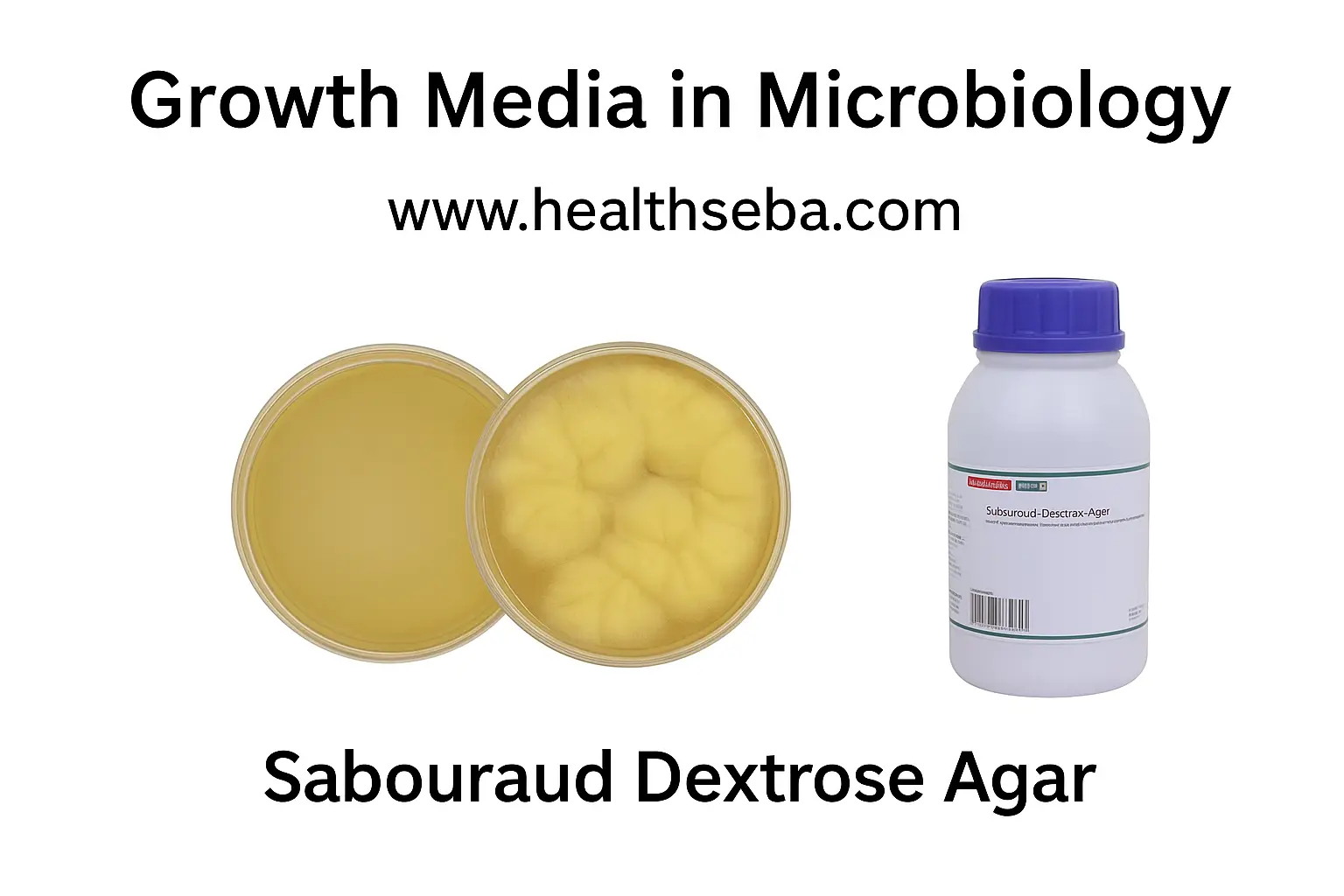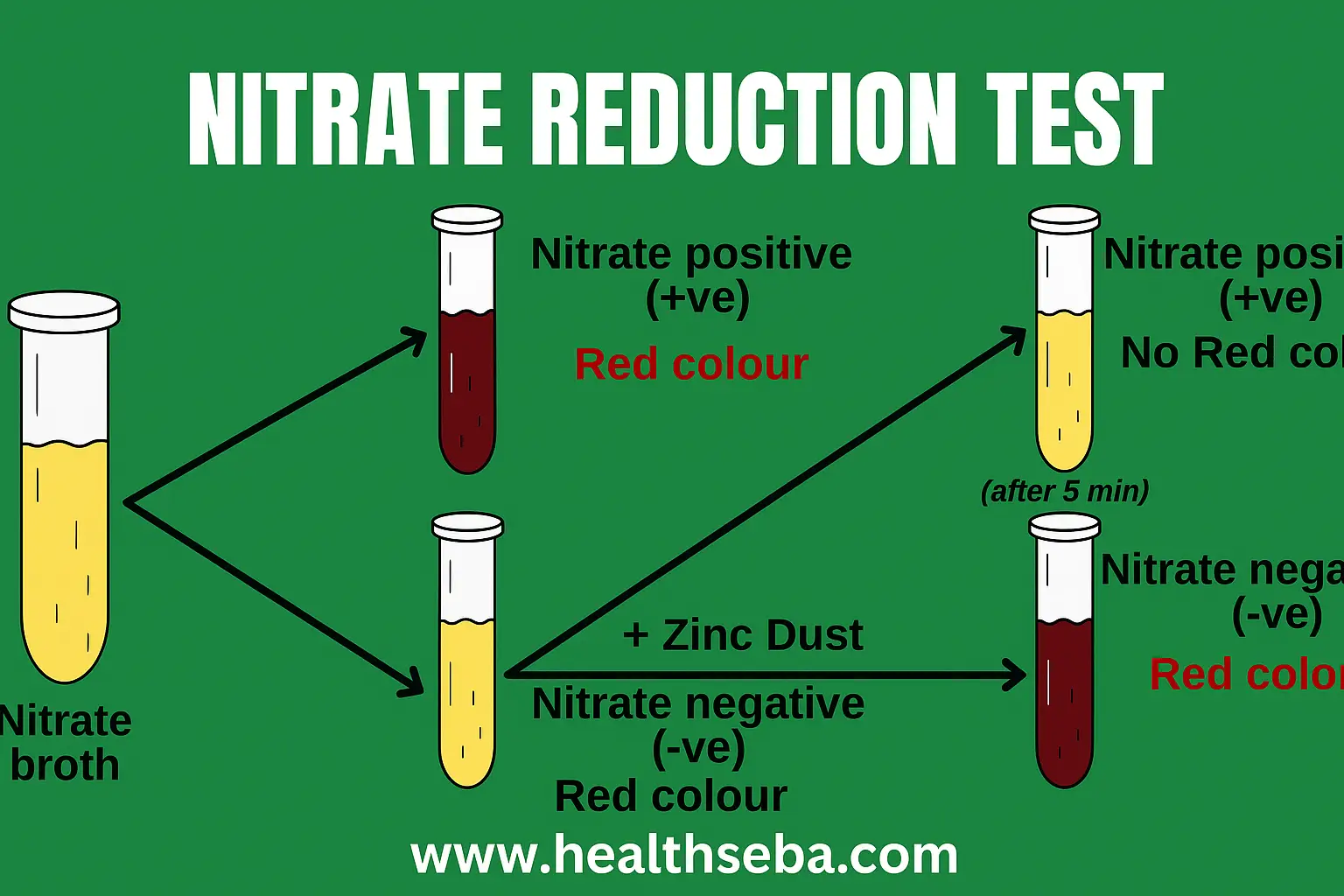Introduction
Lowenstein-Jensen (LJ) medium is a selective egg-based solid medium used for the isolation and cultivation of Mycobacterium species, particularly Mycobacterium tuberculosis.
It was first developed by Lowenstein (1931) and later modified by Jensen (1932) to improve selectivity and growth support.
Media Type
Category: Selective egg-based solid medium
Purpose: Isolation of Mycobacterium tuberculosis from sputum and other clinical samples.
Selectivity: Contains malachite green, which inhibits most contaminants but allows mycobacteria to grow.
Composition & pH of LJ Medium
Per liter of medium:
| Component | Function |
|---|---|
| Whole eggs (~750 mL) | Nutrient base, provides proteins, growth factors, and solidification |
| Potato flour | Additional carbon source, helps egg coagulation |
| Malachite green (0.025 g) | Selective agent – inhibits contaminating bacteria/fungi, enhances contrast |
| Mineral salt solution | Contains KH₂PO₄, MgSO₄, Mg citrate – provides essential ions |
| Distilled water | Solvent |
Final pH: 6.4 – 7.2
Sterilization
LJ medium cannot be autoclaved (egg proteins coagulate).
Instead, sterilized by inspissation (heating at 85–90°C for 30–45 minutes on three successive days).
This process kills contaminants while preserving nutrient quality.
Preparation of LJ Medium
Prepare mineral salt solution with phosphate, magnesium salts, and malachite green.
Mix with homogenized fresh hen’s eggs and potato flour.
Dispense into screw-cap tubes.
Slant the medium to increase surface area.
Sterilize by inspissation at 85–90°C for 30–45 minutes on three consecutive days.
Store at 2–8°C, away from light.
Uses of LJ Medium
Primary isolation of Mycobacterium tuberculosis from clinical samples (sputum, urine, pus, gastric aspirate).
Useful for culture confirmation of tuberculosis.
Supports the growth of other mycobacteria (e.g., M. bovis, M. africanum).
Used for drug susceptibility testing in TB laboratories.
Provides colony morphology study (rough, tough, buff colonies).
Limitations
Slow growth → M. tuberculosis colonies appear only after 2–8 weeks.
Contamination risk is high if sample processing is inadequate.
Requires biosafety precautions (BSL-3 laboratory preferred).
Not useful for fastidious non-mycobacterial pathogens.
Conclusion
Lowenstein-Jensen medium remains the gold standard for culturing Mycobacterium tuberculosis in diagnostic microbiology. Despite being slow, it is inexpensive, selective, and reliable, making it indispensable in TB diagnosis and research.
Related Posts

Sabouraud Dextrose Agar
Introduction Raymond Sabouraud formulated Sabouraud’s Dextrose Agar (SDA) in 1892…
Blood Tests Required For Diabetes
Introduction Diabetes management depends heavily on accurate medical monitoring. Blood…
